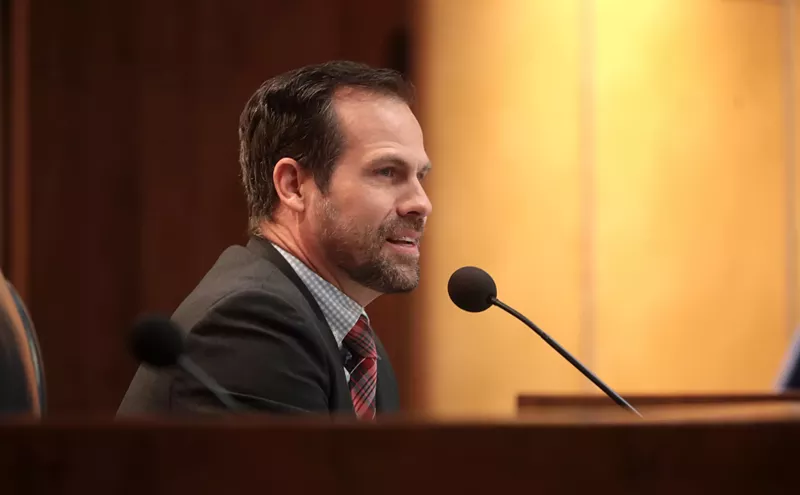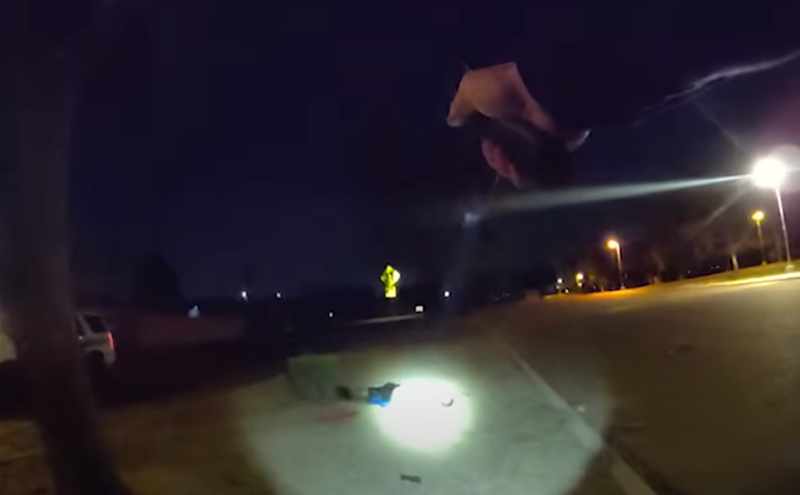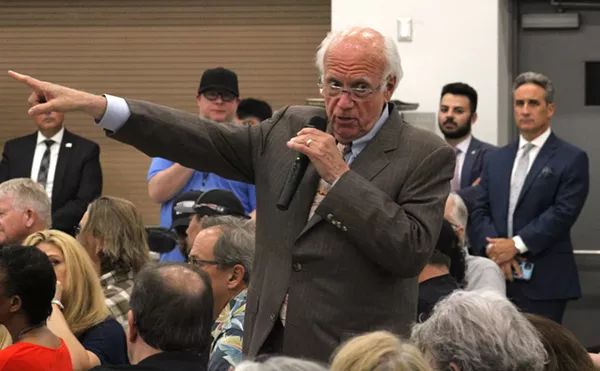An Arizona State University professor well-known for his work on African-American history and race relations has agreed to resign following accusations that he plagiarized parts of his latest book.
Matthew Whitaker will step down as co-director of ASU's Center for Race and Democracy immediately, but he will stay on the university's payroll until May 17, 2017, collecting more than $200,000 in salary, according to a settlement agreement with ASU.
Whitaker will be placed on sick leave until he has exhausted the benefit guaranteed by his contract, then his duties will be “as reasonably assigned,” the agreement stipulates. Whitaker, 44, will have no authority to act or speak on ASU's behalf.
In a statement, ASU officials say Whitaker is leaving “voluntarily.”
On his Facebook page, Whitaker told friends and supporters that he will spend the next year “devoting my full efforts to teaching and working on behalf of racial healing, harmony, diversity, and inclusion” through community service and his consulting company, The Whitaker Group.
In June, ASU demoted Whitaker from foundation professor to associate professor and forced him to bring on a co-director for the Center for Race and Democracy, which he founded, after an internal investigation revealed “significant issues” with the content of his book Peace be Still: Modern Black America from World War II to Barack Obama. He was placed on administrative leave in September while the university evaluated his position.
The probe was spurred by a blog called “The Cabinet of Plagiarism,” published under the suspected pseudonym Ann Ribidoux, tracing sloppily paraphrased and poorly cited bits of Whitaker's book back to sources such as infoplease.com, emmytvlegends.org, and Blackpast.org.
In an e-mail to colleagues after his demotion, Whitaker acknowledged that there was some merit to the criticism but insisted the plagiarism was unintentional.
“I did not purport to write original history and drew upon many established sources,” he wrote. “I did intend to give full credit to all sources. But my critics have revealed numerous mistakes that I made. It is painful to recognize that I was so careless as to fail to properly paraphrase and cite sources, despite my reverence and respect for the work of others in this field.”
After news of the scandal broke, Whitaker relinquished a $268,800 contract, secured by The Whitaker Group, to provide cultural-awareness training to the Phoenix Police Department. An investigation led by Phoenix Councilman Sal DiCiccio later revealed 52 of the 84 presentation slides Whitaker had created for the training were near-carbon copies of slides used by Chicago police.
A group of 10 colleagues in 2011 accused Whitaker of plagiarizing parts of at least six different published writings and a 2010 speech he gave at a rally on the historic roots of the controversial immigration law Senate Bill 1070, according to an Arizona Republic article by Anne Ryman. Ryman hired a copyright and plagiarism consulting firm in New Orleans to analyze the speech and discovered about 30 percent had been lifted from other sources, including a 2006 Washington Post story headlined “U.S. Immigration Debate Is a Road Well Traveled.”
A university investigation concluded, however, that although there were “reasons for concern about occasional carelessness in the use of materials and sources and some less than optimal detail in attribution," Whitaker had not committed “systematic or substantial plagiarism.”
Whitaker, who also authored the book Race Work: The Rise of Civil Rights in the Urban West, has won more than 30 awards for his research and teaching and has often been featured as an expert on CNN, NPR, and PBS, among other media outlets. Before plagiarism accusations surfaced in 2015, ASU selected Whitaker to receive its Pioneer Award for his contributions to improving African-American life.

Audio By Carbonatix
[
{
"name": "GPT - Billboard - Slot Inline - Content - Labeled - No Desktop",
"component": "21251496",
"insertPoint": "2",
"requiredCountToDisplay": "2"
},{
"name": "STN Player - Float - Mobile Only ",
"component": "21327862",
"insertPoint": "2",
"requiredCountToDisplay": "2"
},{
"name": "Editor Picks",
"component": "16759093",
"insertPoint": "4",
"requiredCountToDisplay": "1"
},{
"name": "Inline Links",
"component": "17980324",
"insertPoint": "8th",
"startingPoint": 8,
"requiredCountToDisplay": "7",
"maxInsertions": 25
},{
"name": "GPT - 2x Rectangles Desktop, Tower on Mobile - Labeled",
"component": "21934225",
"insertPoint": "8th",
"startingPoint": 8,
"requiredCountToDisplay": "7",
"maxInsertions": 25
},{
"name": "Inline Links",
"component": "17980324",
"insertPoint": "8th",
"startingPoint": 12,
"requiredCountToDisplay": "11",
"maxInsertions": 25
},{
"name": "GPT - Leaderboard to Tower - Slot Auto-select - Labeled",
"component": "17012245",
"insertPoint": "8th",
"startingPoint": 12,
"requiredCountToDisplay": "11",
"maxInsertions": 25
}
]











